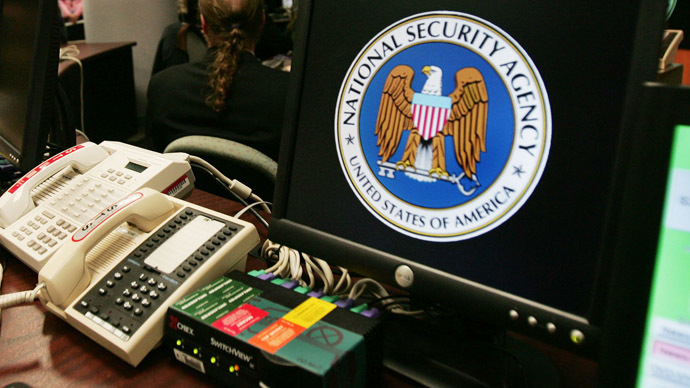Judge demands NSA releases dragnet surveillance records for criminal case

In wake of the NSA surveillance scandal, a Florida judge has demanded that the federal agency hand over the phone records of a man charged with attempted robbery, to help solve a case that culminated in a murder.
The motion provides a glimpse into how the National Security Agency’s surveillance records could be obtained in the future, now that whistleblowers have revealed details of the controversial spy program.
Terrance Brown, a 40-year-old South Florida man standing trial in Fort Lauderdale, is accused of masterminding a robbery that resulted in the death of an armored car messenger in October 2010. Attorneys in the case claim that they are missing Brown’s telephone records and that his service provider, MetroPCS, no longer has them.
The defendant has pleaded not guilty, but prosecutors have relied on the cell phone records of the robbery’s co-conspirators to try to prove Brown’s involvement. Defense attorneys believe that the missing phone records would prove that Brown was not involved in the July 2010 robbery attempt.
The revelation of the NSA’s surveillance program has generated hope that Brown’s missing phone records could be obtained, and possibly prove his alleged innocence.
"The government must be ordered to turn over the records for the two telephones that it attributes to Mr. Brown for the dates which are relevant to this case - the month of July of 2010," attorney Marshall Dore Louis wrote in the motion to compel production of records.
The attorney argued that the surveillance records are highly important in the case, and that the court is not seeking them merely to gather information about Brown.
"The records are material and favorable to Mr. Brown's defense; they are evidentiary and relevant to the issues in trial; they are not otherwise procurable by exercise of due diligence; the application is made in good faith and is not intended as a general fishing expedition; and, the records are necessary for Mr. Brown to meet the government's evidence in this matter," Louis wrote in the motion.
Louis asked the US District Court in Fort Lauderdale to subpoena the NSA for the information, even if the agency determines that it cannot produce the records. He gave the NSA a short deadline to come up with the information, claiming that it is vital for the trial. In the motion, the attorney notes that the NSA program has been ongoing since 2006, indicating that the government has collecting Brown’s cell phone data from 2010.
"The Court regrets the short deadline for compliance but notes that the evidence that defendant Brown seeks pertains to a trial that has been underway since May 31, 2013, and any order requiring the production of any materials sought would become meaningless if such items were not produced in sufficient time for the defense to use them in its case," the judge wrote.
Although the surveillance records have the potential to benefit the defendant, the court’s request demonstrates that the NSA’s surveillance could quickly leave the hands of the government. If the agency provides Brown’s surveillance data, it may set a precedent to hand over private information, even in cases where there is no evidence of a terrorist threat.
Local lawyers told the Sun Sentinel that more of these requests will likely arise, now that the NSA’s secret database has been revealed.
“If the government is spying on our phone calls, it can’t then claim in the same breath that it won’t provide those calls when it helps the defense. What’s food for the goose is good for the gander,” said David Oscar Markus, a South Florida defense lawyer.
Jonathan Turley, a George Washington University law professor, told the Daily Mail that he expects numerous lawsuits to challenge the government’s phone records collection program over the next several months, in some cases requesting access to the information.
“It was a game-changer when the government acknowledged the program, and you’re going to see additional lawsuits in the next few weeks and months,” he said.
It is unclear if the NSA would provide its surveillance information to the individual it was gathered from, or others who request it. The NSA’s response to the Florida court’s request could set a precedent on how it shares the private information it gathered.














